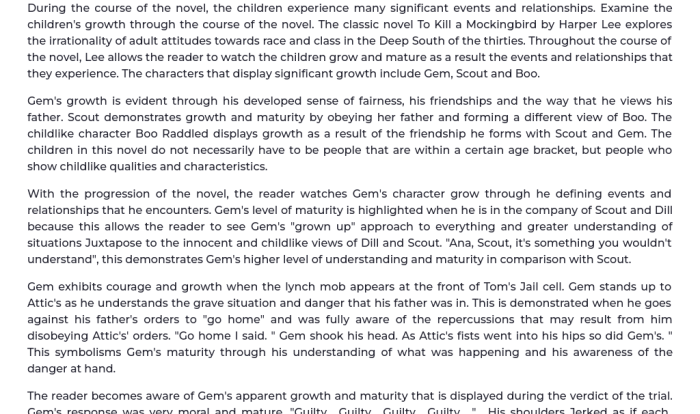Etheridge knight the idea of ancestry – In the realm of literature, Etheridge Knight stands as a towering figure whose exploration of ancestry and identity has left an indelible mark. Through his evocative poetry, Knight delves into the complexities of race, heritage, and the search for personal and cultural belonging.
Knight’s African American ancestry served as a profound influence on his work, shaping his understanding of race and identity. His experiences as a young man in the Jim Crow South instilled within him a deep awareness of the societal divisions that plagued his community.
Exploring Etheridge Knight’s Lineage

Etheridge Knight was born into a family with a rich African American heritage. His ancestors were enslaved people who endured the horrors of the transatlantic slave trade and the oppressive conditions of slavery in the United States.
Knight’s African American ancestry profoundly influenced his work as a poet. His experiences with racism and discrimination shaped his understanding of race and identity. He explored these themes in his poetry, using his powerful voice to speak out against injustice and oppression.
Knight’s Family History, Etheridge knight the idea of ancestry
Knight’s family history is a testament to the resilience and strength of the African American community. His great-grandmother, Sarah, was a slave who escaped to freedom during the Civil War. She settled in Mississippi, where she raised a family and became a pillar of her community.
Knight’s grandfather, John, was a sharecropper who worked hard to provide for his family. He was also a gifted musician and storyteller, passing down his love of language and music to his grandson.
Knight’s father, George, was a World War II veteran who worked as a laborer. He instilled in his son a strong work ethic and a deep sense of pride in his African American heritage.
Ancestry in Knight’s Poetry
Etheridge Knight’s poetry often explores themes of ancestry, lineage, and heritage. Knight uses his poetry to trace his lineage back to Africa and to examine the ways in which his own experiences as a Black man in America have been shaped by his ancestry.
The Idea of Ancestry
In his poem “For Malcolm,” Knight writes: “I have no name / I am a number / I have no face / I am a mask.” These lines reflect Knight’s feelings of alienation and disconnection from his own identity. He feels that he has been stripped of his individuality and that he is merely a number or a mask.
However, Knight also finds strength in his ancestry. In his poem “The Black Poets,” he writes: “We are the inheritors of a rich tradition / We are the children of the blues / We are the grandchildren of the spirituals.”
These lines express Knight’s pride in his African heritage and his belief that he is part of a long and proud tradition of Black poets.
Challenging Traditional Notions of Race and Heritage
Knight’s poetry also challenges traditional notions of race and heritage. In his poem “To a White Poet,” he writes: “You are a white poet / And I am a black poet / But we are both poets.” These lines suggest that race is a social construct and that it is ultimately more important to focus on our shared humanity.
Knight’s poetry is a powerful and moving exploration of the themes of ancestry, lineage, and heritage. He uses his poetry to trace his own lineage back to Africa and to examine the ways in which his own experiences as a Black man in America have been shaped by his ancestry.
The Influence of Ancestral Voices
Etheridge Knight’s poetry is deeply rooted in the voices of his ancestors. He incorporates their experiences, wisdom, and struggles into his work, creating a powerful connection between the past and the present.
Knight’s ancestors are often present in his poems as spirits or guides. They offer him advice, comfort, and strength. In “The Idea of Ancestry,” he writes:
“I am the dark seed of my fathers’ pain / and the white seed of my mother’s pain / I am the seed of the future / and the seed of the past.”
Here, Knight acknowledges the pain and suffering that his ancestors endured, but he also celebrates their resilience and determination. He sees himself as a continuation of their legacy, carrying their voices and stories into the future.
The Shaping of Content and Form
The voices of Knight’s ancestors not only influence the content of his poetry but also its form. His poems often incorporate elements of African-American folklore and music, such as call-and-response patterns and blues rhythms. This gives his work a unique and distinctive sound that reflects the cultural heritage of his ancestors.
Bridging the Past and Present
Knight’s poetry serves as a bridge between the past and the present. By incorporating the voices of his ancestors into his work, he brings their experiences and perspectives to a contemporary audience. This allows readers to connect with the struggles and triumphs of African-Americans throughout history.
In “For Black People,” Knight writes:
“We are the inheritors of a rich and proud tradition / We are the children of warriors and poets / We are the builders of civilizations.”
These lines celebrate the legacy of African-Americans and remind readers of their strength and resilience. Knight’s poetry helps to keep the voices of his ancestors alive and to inspire future generations.
Ancestry and the Search for Identity: Etheridge Knight The Idea Of Ancestry

Etheridge Knight’s exploration of ancestry is a defining aspect of his poetry, contributing significantly to his search for personal and cultural identity. In a racially divided society, Knight’s work delves into the complexities of identity formation, offering profound insights into the search for belonging and self-understanding.
Identity Formation in a Racially Divided Society
Knight’s poetry reflects the challenges of forging an identity amidst the racial tensions and prejudices of his time. Through his exploration of ancestry, he examines the impact of societal constructs on personal identity. His poems explore the ways in which racial stereotypes and discrimination shape self-perception and limit opportunities.
By reclaiming his ancestral heritage, Knight asserts his right to a multifaceted identity that transcends racial boundaries. His poetry celebrates the strength and resilience of his ancestors, offering a powerful counter-narrative to the dominant discourses that sought to marginalize and dehumanize people of color.
Inspiring Readers to Reflect on Belonging
Knight’s work inspires readers to reflect on their own sense of belonging and identity. Through his exploration of ancestry, he invites readers to question the societal norms that shape their perceptions of self and others. His poetry encourages empathy and understanding, fostering a sense of shared humanity that transcends racial and cultural divides.
By challenging traditional notions of identity, Knight’s poetry opens up new possibilities for self-discovery and self-acceptance. His work empowers readers to embrace their unique identities and to forge meaningful connections with others, regardless of their background or circumstances.
FAQ Overview
What is the significance of Etheridge Knight’s African American ancestry to his work?
Knight’s African American ancestry served as a profound influence on his work, shaping his understanding of race and identity. His experiences as a young man in the Jim Crow South instilled within him a deep awareness of the societal divisions that plagued his community.
How does Knight use language and imagery to convey his feelings about his lineage?
Knight uses language and imagery in a powerful and evocative way to convey his feelings about his lineage. His poems are rich in metaphor, symbolism, and vivid descriptions that bring his ancestors and their experiences to life.
In what ways does Knight’s poetry challenge traditional notions of race and heritage?
Knight’s poetry challenges traditional notions of race and heritage by presenting a complex and nuanced view of these concepts. He rejects simplistic categories and instead explores the fluidity and interconnectedness of identity.


